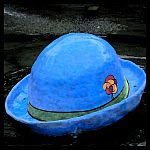A Short History of Short Attacks, Part Two
posted by The Traveller on Monday, May 30, 2011
China Marine Food Group (CMFO) has come under pressure from short sellers several times throughout 2010. A person posting under the alias "Chinese Company Analyst" on Seeking Alpha repeatedly called the company a fraud: "The main thrust of our argument that CMFO is a fraud is that the Company's SAIC and SEC filings don't match." (June 1, 2010) and "Investors ... should be concerned about whether ZYCPA is actively aiding China Marine Food management in falsifying its SEC financial statements." (June 16, 2010).
ZYCPA, China Marine Food's auditor at that time, is a small Hong Kong firm that has several U.S.-listed clients, including NF Energy Savings (NFEC) and China Sun Group (CSGH). The firm had repeatedly been accused of participating in alleged frauds, and whenever that happened the auditor changed its name: from Zhong Yi (Hong Kong), to ZYCPA, and now they use the moniker "HKCMCPA" - the original firm is no longer recognizable. China Marine Food engaged BDO China as its new auditor in October 2010 and is no longer connected with ZYCPA/HKCMCPA.
Another Seeking Alpha author attacking the company was Chimin Sang, when he wrote in June 2010 that CMFO's "business itself is nearly impossible. It has $400 fixed assets, little inventory, zero finished product inventory, but it has a magic ramp-up of sales." None of those attacks had an immediate effect on CMFO's stock price. The stock traded in a relatively narrow range for the remainder of 2010, and closed the year unchanged from the levels of mid-June. However, the performance for 2011 is terrible and CMFO printed new lows this Friday, to close at $2.92, down 45.93% for the year.
Muddy Waters Research, perhaps the most famous of all China short-selling outfits, emerged on June 28, 2010, with its initial "Sell Short" report on Orient Paper (ONP): "We are confident that ONP is a fraud. Its purpose is to raise and misappropriate tens of millions of dollars." The company swiftly responded by stating that it "categorically denies these allegations and has instructed its legal counsel to contact Muddy Waters and explore all legal options against it for publishing and distributing such a report." However, the stock lost some 20% of its value within three days from the release of Muddy Waters' report.
A whole battalion of short sellers jumped on Muddy Waters' bandwagon and published further attacks over the next few weeks. Again we have "Chinese Company Analyst" - whose website is no longer active today - questioning the integrity of Orient Paper's auditors BDO Limited, the Hong Kong member firm of BDO International. He also published another article where he claims to "provide compelling evidence that Orient Paper is falsifying its financial statements." And Chimin Sang, a very vocal China bear who posted negative articles on a growing number of Chinese reverse mergers (FUQI, CCME, CHBT, ZSTN, SCEI), meant to let the world know that he "side[s] with Muddy Waters: ONP has more likely than not committed fraud."
Orient Paper initiated an internal investigation of these fraud allegations, which, according to the company, did not find any evidence for fraud. Drew Bernstein, the head of ONP's audit committee and a partner in the New York-based accounting firm Marcum Bernstein & Pinchuk, concluded that: "When you look at Muddy Waters' allegations in totality, you'd have to say they are false." He said that ONP is "by now perhaps the most vetted company in China."
Muddy Waters hasn't admitted defeat, instead they questioned the validity of the company's internal investigation. And Orient Paper's share price? The stock recovered nicely after the investigation concluded, yet it is now trading at lower levels than any time in 2010, printing new lows last week and sitting on a 44.34% loss for the year.
Sharesleuth picked on Chinese telecom equipment company Telestone Technologies (TSTC) in an article published on August 11, 2010. The article focused on TSTC's growing accounts receivable issue and concluded that "investors who are considering the company because of its sharp increase in sales and earnings and its attractive profit margins might want to know more about the underlying numbers." The article was explicitly "not alleging any wrongdoing by Telestone," but it set the tone for further negative articles this winter.
On January 10, 2011, The Forensic Factor called Telestone "a RINO in sheep's clothing," stating that they are "nearly convinced that Telestone has misrepresented its prospects, size, and business to the investment community." TSTC swiftly rejected all allegations and called the article "an unjustified swipe at a reputable and successful Chinese business." The Forensic Factor remained unimpressed and posted a follow-up two weeks later with the telling title "The Great Wall of Deceit".
TSTC suffered its steepest losses in 2010 already, when the share price was roughly cut in half. Most of these losses can in fact be attributed to the accounts receivable issues, unrelated to any specific short-selling attack. For 2011 the stock is down 29.67%, yet it has recovered almost 50% from its early April low. It is one of the very few Chinese reverse merger stocks that seems to be in an uptrend for the past four weeks. But TSTC is not for the faint of heart, the Trading China Risk Model suggests that this is one of the highest risk stocks in the China small caps universe.
To be continued...

